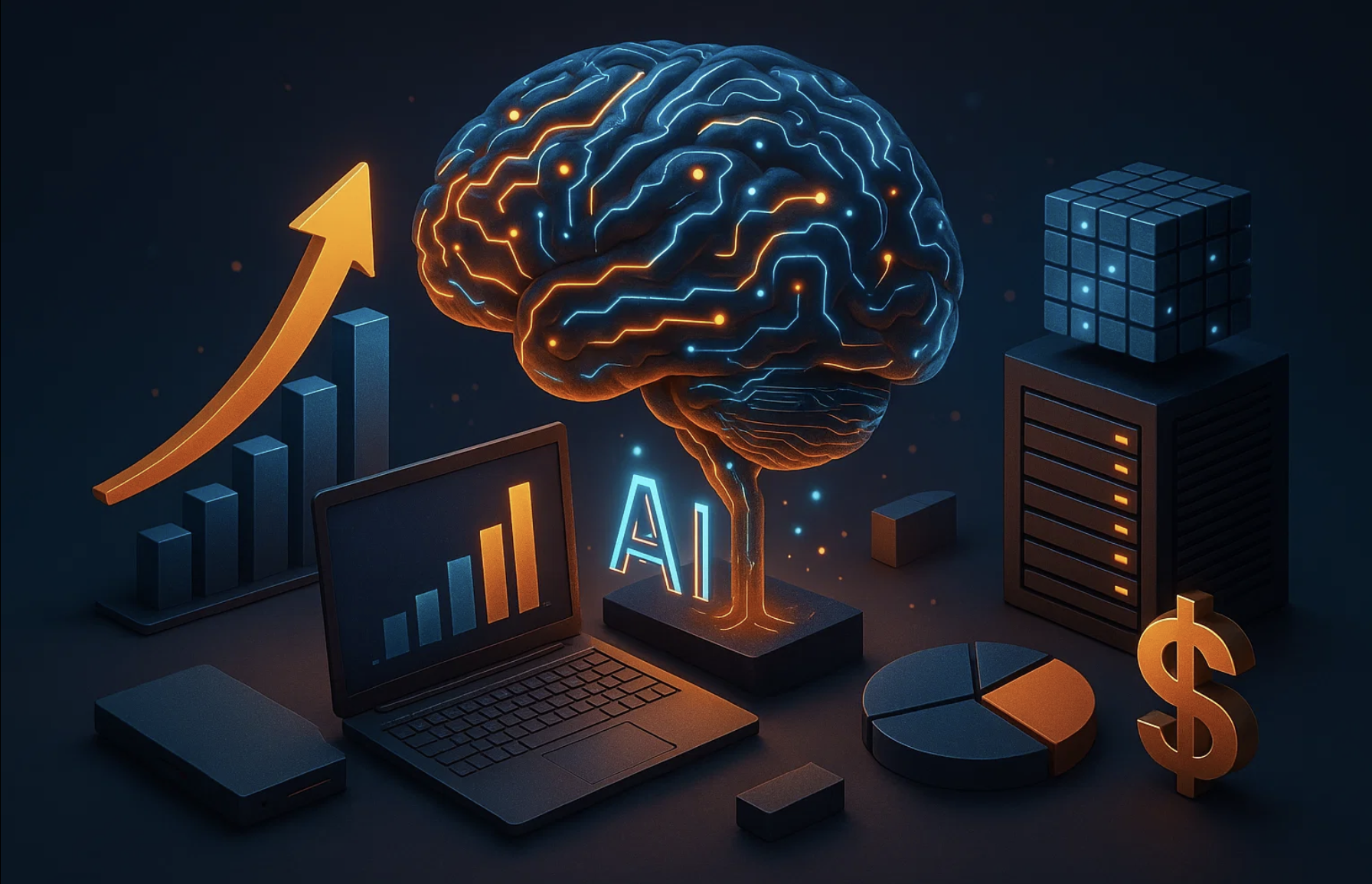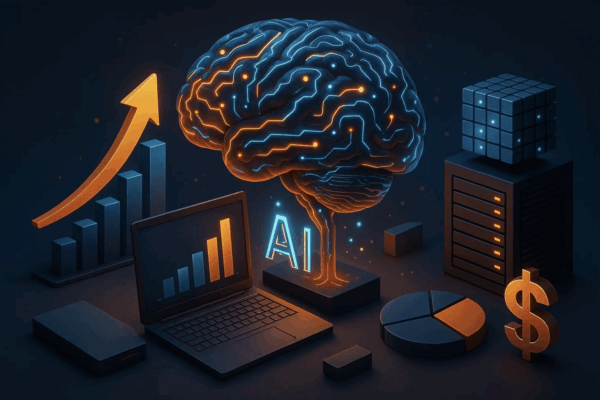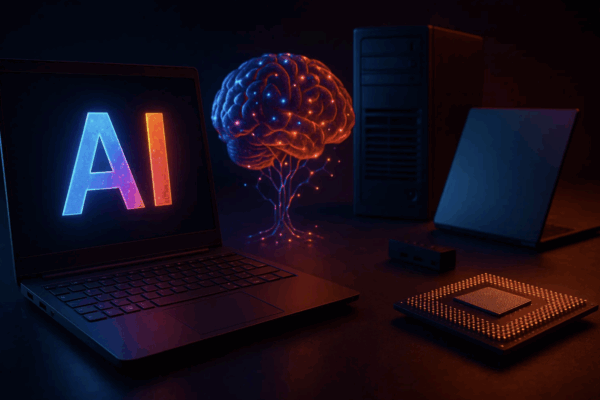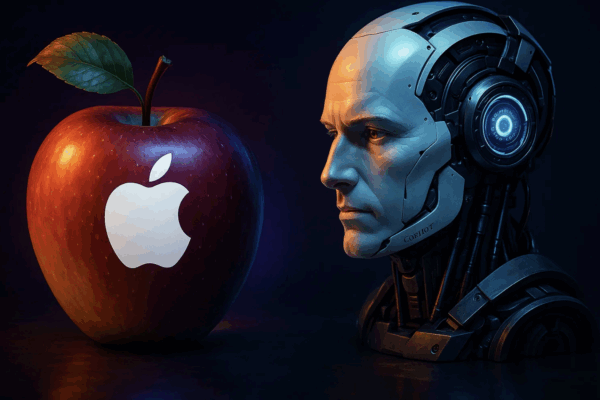

The Business Case for Lenovo’s AI Leadership in 2025
Artificial intelligence has become one of the most important drivers of transformation in the global technology market. From enterprise solutions to consumer devices, AI is no longer just a research field—it is a critical business differentiator. Among the major technology companies competing for dominance, Lenovo has emerged as a surprising leader. In 2025, Lenovo’s unique strategy for artificial intelligence is reshaping the way businesses and governments think about AI adoption.
This article explores the business case for Lenovo’s AI leadership in 2025, why enterprises are increasingly aligning with Lenovo’s AI solutions, and what it means for the competitive landscape.
Why Lenovo’s AI Strategy Matters in 2025
The global AI market is projected to reach well over $300 billion in 2025, spanning industries from healthcare and finance to logistics, cybersecurity, and education. While many companies like Microsoft, Google, and NVIDIA capture headlines, Lenovo has quietly positioned itself as a practical AI provider with an emphasis on enterprise deployment, infrastructure optimization, and security-first AI systems.
For businesses, AI adoption is not just about advanced algorithms. It is about deployability, cost efficiency, scalability, and integration with existing workflows. Lenovo’s AI solutions stand out because they are not abstract tools for researchers, but concrete products that deliver measurable business value.
The Business Advantages of Lenovo’s AI Leadership
1. Enterprise-Ready AI Infrastructure
Lenovo has heavily invested in high-performance computing (HPC), edge AI servers, and hybrid cloud ecosystems. By combining AI-optimized data centers with edge computing devices, Lenovo enables businesses to analyze data in real time, reduce latency, and cut costs. For industries like manufacturing, retail, and logistics, this is critical for achieving operational efficiency and faster decision-making.
2. Focus on Practical Applications
While some tech giants push futuristic AI concepts, Lenovo’s strategy focuses on AI that solves real-world business problems today. Examples include AI-driven predictive maintenance for factories, smart healthcare diagnostics, and AI-powered financial risk modeling. This emphasis on practical applications makes Lenovo’s AI offerings especially attractive for enterprises with immediate ROI expectations.
3. Cost Efficiency and Accessibility
Unlike competitors that often provide high-cost proprietary solutions, Lenovo emphasizes affordable, scalable AI solutions. This aligns well with businesses in emerging markets and small to mid-sized enterprises (SMEs) that want to embrace AI without overspending. By democratizing AI accessibility, Lenovo has expanded its customer base far beyond traditional tech buyers.
4. Global Reach and Local Expertise
Lenovo’s global presence, particularly its strong footprint in Asia, Europe, and the United States, allows it to localize AI solutions effectively. Governments and enterprises prefer AI vendors who understand regulatory landscapes, compliance requirements, and cultural contexts, giving Lenovo a strategic advantage in regions where rivals face barriers.
5. Sustainability and Responsible AI
In 2025, ESG (Environmental, Social, and Governance) goals are critical for enterprises. Lenovo integrates sustainability into its AI hardware and software development. Energy-efficient data centers, green supply chains, and AI ethics frameworks make Lenovo not only a tech leader but also a trusted partner for businesses looking to balance profit with responsibility.
How Lenovo Outpaces Competitors in the AI Race
Competitors like Microsoft and Google may lead in cloud AI, and NVIDIA dominates in GPUs, but Lenovo’s strength lies in execution and enterprise adoption. Instead of competing directly with consumer-facing AI products, Lenovo positions itself as a business-first AI partner, delivering solutions tailored to industry needs.
Another factor is Lenovo’s partnership strategy. By collaborating with leading chipmakers, cloud providers, and software developers, Lenovo integrates best-in-class technologies into a cohesive ecosystem. This avoids vendor lock-in and gives enterprises flexibility—a key demand in 2025 as businesses seek resilience and adaptability.
Case Studies: Lenovo’s AI in Action
-
Healthcare: Hospitals use Lenovo’s AI diagnostic tools to improve patient outcomes by detecting diseases earlier and reducing diagnostic errors.
-
Manufacturing: Factories leverage Lenovo’s AI-driven predictive maintenance systems to cut downtime and improve efficiency.
-
Finance: Banks and fintech firms deploy Lenovo’s AI risk analysis models to reduce fraud and enhance compliance.
-
Retail: AI-powered customer behavior analytics from Lenovo help retailers optimize inventory and personalize customer experiences.
These real-world use cases illustrate how Lenovo is not just theorizing about AI but delivering tangible results that directly improve profitability and competitiveness.
The Investor Perspective
From a financial standpoint, Lenovo’s AI growth positions the company as more than a traditional hardware vendor. Investors increasingly see Lenovo as a hybrid company—part hardware, part AI solutions provider. This diversified approach lowers risk and ensures long-term relevance in a market where pure hardware margins are shrinking.
By 2025, Lenovo’s revenue streams from AI-powered infrastructure, enterprise software, and managed AI services are expected to rival its traditional PC business. This transition is key to sustaining growth in a competitive global tech environment.
The Future Outlook
As AI adoption accelerates, the winners in this race will not only be those who innovate but also those who execute with trust, security, and scalability. Lenovo’s AI leadership in 2025 demonstrates that being the loudest in AI marketing is less important than delivering reliable, real-world solutions.
The business case for Lenovo’s AI is clear: enterprises trust Lenovo because it combines global reach, cost efficiency, practical innovation, and ethical responsibility. These factors ensure that Lenovo remains not only competitive but also influential in shaping the global AI market.
Final Thoughts
In 2025, Lenovo’s AI leadership is more than a technological achievement—it is a strategic business model that sets the company apart from competitors. For enterprises, governments, and investors, the case for choosing Lenovo is simple: reliable AI with real impact.
As businesses continue to navigate the complexities of AI adoption, Lenovo’s balanced approach—focused on accessibility, efficiency, and responsibility—offers a blueprint for how AI should be integrated into the future of global commerce.



